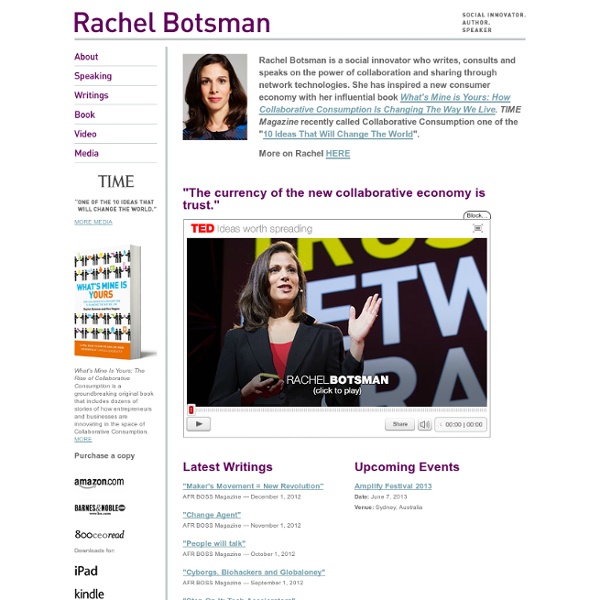



The collaborative economy in your neighborhood: welcome to StreetBank The idea that neighbors can share their resources efficiently is not new, however there are very few examples of successful initiatives to date. Many sharing schemes failed after only a few years. A successful example of such a model is StreetBank, a platform in England that is growing steadily. StreetBank is an online platform that allows neighbors to collectively share items they possess individually. At the time of writing, StreetBank counts 19,000 members in total, mostly in the UK (80%), and has some small groups of members in other countries as well, especially in Washington State, Sydney and Iran. Garage Days The project was self funded for the first 18 months until support was secured from Nesta, which allowed Sam to devote more resources to the project. Building a community The main focus of the project according to Sam is to build trust in the community. The fact is that Priming the Pump StreetBank also allows users to simply give things away as well as share them.
L'émergence de la Consommation collaborative - Economie La montée de la consommation collaborative Pour ses défenseurs, la consommation collaborative est en passe de devenir un mouvement, qui va des places de marchés mondiales comme eBay à des secteurs de niches comme le prêt entre particuliers. Le Monde.fr | • Mis à jour le | Par Hubert Guillaud "La consommation collaborative correspond au fait de prêter, louer, donner, échanger des objets via les technologies et les communautés de pairs", explique le site éponyme lancé par Rachel Botsman et Roo Rogers, les auteurs de What’s mine is yours, the rise of collaborative consumption (Ce qui est à moi est à toi, la montée de la consommation collaborative). Ceux-ci affirment d’ailleurs que cette pratique est en passe de devenir un "mouvement". Un mouvement qui va des places de marchés mondiales comme eBay ou Craiglist à des secteurs de niches comme le prêt entre particuliers (Zopa) ou les plates-formes de partage de voitures (Zipcar). Les fans du partage ont déjà leur magazine : Shareable.net.
collaborative economy Consommation collaborative : les signaux faibles sont-ils si faibles que cela ? | weave AIR Publié le 4 décembre, 2013 Consommation collaborative par ci, économie du partage par là, … les actualités ne manquent pas. Elles témoignent sans aucun doute d’un engouement croissant pour ces nouveaux modes de consommation dits alternatifs. D’une part, les études sur le sujet se multiplient. Et sur le terrain (puisque c’est finalement bien là que cela se passe), les initiatives foisonnent et annoncent (peut-être) une extension du mouvement. Les chiffres et les faits nous poussent donc à penser que le mouvement collaboratif gagne non seulement du terrain mais aussi des points dans notre société. La possession, une espèce (de concept) en voie de disparition ? Si la possession constitue un pilier de la société de consommation dans laquelle « on est ce que l’on a », des voix s’élèvent aujourd’hui pour dénoncer un trop-plein de matérialité. Certes, les états d’esprit changent ; de nouveaux se créent à l’image de la fameuse génération Y, déjà acquise à une logique de réseau. par Marion Bedat